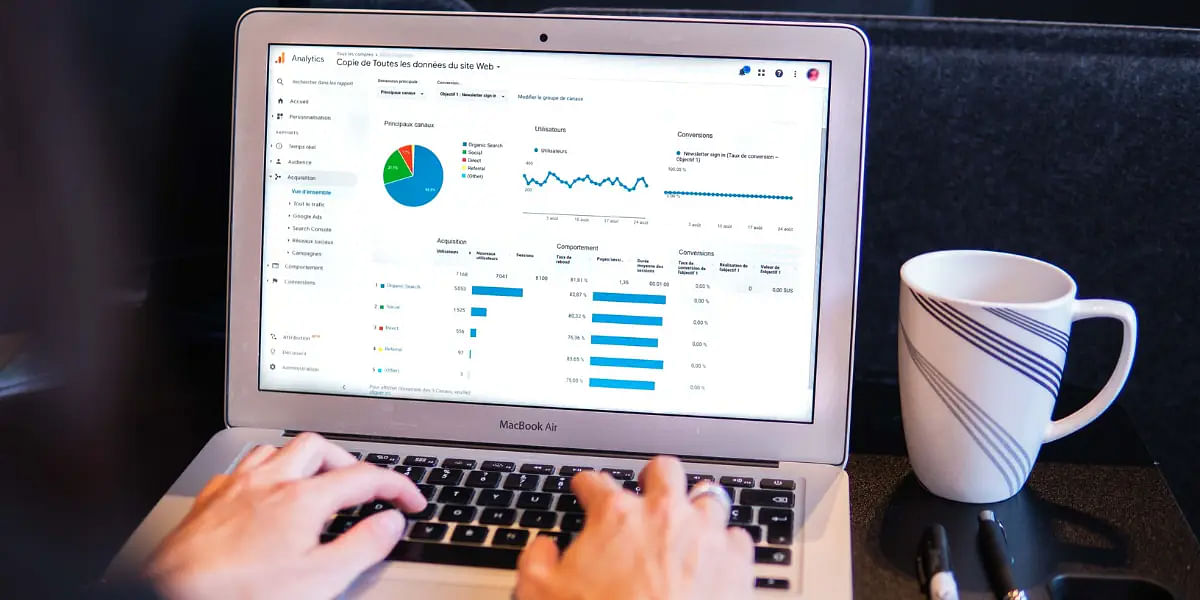Is being a Data Analyst your dream career option? Check out the complete step by step process on how to become a Data Analyst, Eligibility, Exams, Skills Required and Salary in 2023.
A Data Analyst is responsible for studying data, collecting, structuring and assessing them, to provide valuable insights for a company to make the right decisions to improve their operations. A career as a Data Analyst has seen 23% growth since 2021 till date.
Since it takes 3 to 6 years to become a Data Analyst, candidates must take up a relevant UG course such as BCA, B.Tech, B.Sc Economics, etc. Further, they must complete their PG level and take a certificate course to equip themselves with the programming and software skills required in the domain. Candidates will next be eligible to apply for a post as a Data Analyst across different sectors.
Table of Contents:
- How to Become a Data Analyst?
- Who is a Data Analyst?
- How long does it take to become a Data Analyst?
- What do Data Analysts do?
- Skills Required to Become a Data Analyst
- Career Progression as a Data Analyst
- Salary of a Data Analyst
How to Become a Data Analyst?
Aspirants who want to know how to become a data analyst can check the below steps. Below, we will discuss the data analyst qualifications, certification course, data analyst exam etc.
- Step 1: Qualify 10+2 Levels
- Step 2: Get a Relevant Degree
- Step 3: Gain a Certification
- Step 4: Build Technical Skills
- Step 5: Data Analyst Internship
- Step 6: Apply for a Data Analyst Job
Step 1: Qualify 10+2 Levels
Candidates must take a combination of statistics, mathematics, economics and computer science after completing class 10. They must score at least 55% aggregate marks in Class 12 and above 50% in every core subject.
Step 2: Get a Relevant Degree
Aspirants who wish to become data analysts must pursue a bachelor's degree in specialisations such as mathematics, economics, statistics, or computer science. If required, candidates must take the required entrance exam to apply for admission to the courses mentioned above. Candidates must secure 50% marks or equivalent at their undergraduate level.
Data Analyst UG Courses and Entrance Exams
Aspirants must select a course which fulfils the key skill requirements of a Data Analyst. Specialisations related to Science, Technology, Engineering and Mathematics will increase candidates' knowledge and help them get placed at the top companies.
|
Data Analyst UG Course |
Entrance Exams |
Duration |
Average Fees |
|
SAT, CUET, DUET, BHU UET, and AMU |
3 Years |
INR 7500-3 LPA |
|
|
CUET, SET, IPU CET, MET, and CUCET. |
3 Years |
INR 15,000-2 LPA |
|
|
JEE Mains, JEE Advanced, WBJEE, VITEE |
4 Years |
INR 40,000-3 LPA |
|
|
JEE Main, JEE Advanced, VITEEE, WBJEE |
4 Years |
INR 1.1-7 LPA |
Other branches which candidates can opt for to gain data analyst skills are Information Management, Statistics, Finance, Marketing and Business Information Systems.
Data Analyst PG Courses and Entrance Exams
Even though many candidates opt to get a job after acquiring a Bachelor's degree, it is always better in today's day and age to add a master's degree to the qualification matrix. This provides better job opportunities and scope to receive more than the average salary of data analysts in India. Some specialisations candidates can take up after completing their UG level education are,
|
PG Courses |
Entrance Exams |
Duration |
Average Fees |
|
CUET, NIMSEE |
2 Years |
INR 90,000 - 1.8 LPA |
|
|
GATE, IIT PG |
2 Years |
INR 30,000 - 1 LPA |
|
|
IPU CET, BHU PET, PGCET, NIMCET, |
3 Years |
INR 30,000-2 LPA |
Step 3: Gain a Certification
For Senior or Management level positions, candidates must complete certifications of the programs they are learning. The vendor of the program provides certificates. Some certifications which candidates can complete to become a Data Analyst are given below:
|
Certification Name |
Course Overview |
Duration |
Fees |
|
Google Data Analytics Professional Certificate |
A certificate course tailored for novice learners which does not require any prior experience. The course teaches candidates how to filter, organise and analyse data using spreadsheets, SQL and R programming. |
6 Months |
INR 3,156 per month. |
|
IBM Data Analyst Professional Certificate |
The course aims at candidates who wish to join entry-level Data Analyst posts and teaches Python, SQL, Excel, and IBM Congo Analytics topics. |
11 Months |
INR 3,156 per month |
|
Microsoft Certified: Power BI Data Analyst Associate |
The course is meant for subject matter experts who wish to upskill and learn advanced-level analytics. Candidates must score 700 on Exam PL 300 to get the certificate |
180 Minutes |
INR 4,800 |
|
AWS Certified Data Analytics |
The course is designed for industry experts with 5 years of work experience as a Data Analyst. To achieve the certificate, candidates must pass the Amazon DAS 01 exam |
1 Week to 2 Months |
INR 24,300 |
|
SAS Statistical Business Analyst Professional Certificate |
The SAS course is ideal for candidates wanting to scale up their abilities in statistical modelling and predictions. |
3 Months |
INR 3,965 per Month |
|
CompTIA Data Analytics Plus Certification |
The course equips candidates with knowledge of data mining, manipulation, reporting, visualisation, etc. |
1 Week to 4 Months |
INR 11,165 |
These certifications will help Data Analysts reach their professional goals. The certificate data analyst course fee ranges from INR 3,156 to INR 24,300 per month.
Step 4: Build Technical Skills
In addition to the certification above, candidates who have studied B.Com or B.Sc in Economics can learn a programming language. This will help them to understand data analysis systems. Short courses and online classes on C++, Python, PHP, Apache Hadoop, Javascript and XML are easily available for interested candidates. Some of the technical skills required for data analysts are mentioned in the table below.
|
Programming Languages |
Data Analyst Tools |
Data Mining Tools |
|
Javascript |
SAP BusinessObjects |
Apache Mahout |
|
Python |
Microsoft Power BI |
Dundas BI |
|
Go |
TIBCO Spotfire |
SAS Data Mining |
|
PHP |
ThoughtSpot |
Rattle |
Step 5: Data Analyst Internship
Candidates can apply to companies for a data analyst internship. Here they can learn how data analysts work in real time and apply their knowledge in practical terms. Additionally, they will be able to assist data analysts on ongoing projects and even learn the administrative aspects of the job.
Step 6: Apply for a Data Analyst Job
Once candidates have acquired the education qualifications, degrees and certifications to become data analysts, they can apply for jobs at Banks, IT Companies, Retailers, Pharma Companies, Consulting Agencies, Financial Firms, Healthcare Organisations, Manufactures, Digital Marketing Agencies etc.
Who is a Data Analyst?
Data analysts are responsible for gathering, filtering, restyling and structuring data to detect business solutions to improve the performance of an organisation. The analysis drawn by Data Analysts aids in making decisions related to investments, capital allocation, marketing, and more.
Companies require an expert to manage and process the data to collect valuable insights to make the best business decisions. However, it is an industry requiring a lot of technical skills and pre-existing analytical knowledge.
How long does it take to become a Data Analyst?
To become a data analyst in India, candidates must successfully complete their bachelor’s degree atleast which will take around 3-4 including the internship of 6-12 months. Apart from that, candidates need to develop a very strong technical knowledge in order to become a successful data analyst, investing in online courses on courses such as Google Data Analytics Professional Certificate, Excel Skills for Data Analytics and Visualization Specialization, Data Analyst in R etc.
This will help the candidate clear the technical rounds in interviews and get placed in prominent positions such as Data Analyst, Business Analyst, Financial Analyst, Research Analyst etc.
What do Data Analysts do?
Data Analysts work on finding, processing and analysing data to help companies improve their performance in terms of production and business decisions. Companies from retail, healthcare, marketing, and finance hire data analysts. The tasks they are involved in are,
- Drafting reports with insights based on the data collected.
- Analysing data using statistical tools.
- Transforming data into concise information.
- Checking industry trends.
- Providing relevant information to guide management in making business decisions.
- Creating visualisations to present data in front of internal and external stakeholders.
Skills Required to Become a Data Analyst
Candidates who want to know how to become a data analyst must understand that certain skills are required to become an expert in the field. We have segregated the skill Requirements into soft and hard skills.
Soft Skills
Some of the soft skills required to excel in the position of a data analyst are,
- Critical Thinking: Candidates must be ready to handle technical and analytical issues which crop up and find effective solutions using critical thinking to solve the problems.
- Methodical: Aspirants are required to have a systematic approach when dealing with a huge amount of data. They must be able to find patterns and derive solutions based on their analytical skills.
- Communication Skills: Candidates must be excellent communicators. When they present solutions to businesses after decoding a bunch of data in front of a panel, they must be able to explain the study behind the findings.
- Problem Solving: Data Analysts must be able to find solutions for real-world problems using technology and analysing big data structures and algorithms
- Analytical Thinking: The job role of the Data Analyst requires observing and analysing critical data sets to extract useful information to solve various problems hence analytical thinking is a crucial part of the role.
Hard Skills
Other than the soft skills mentioned above, candidates must possess these skills.
- Numerical Skill: Aspirants must have a thorough understanding of numbers and be able to read statistics and graphs, which is one of the key skill sets required in a Data Analyst.
- Tech Skills: Data Analysts must have their way with computers, as most of their work is computer-based, like learning programming and coding and using analytical software.
- Visualisation: Candidates must be able to create graphs and charts based on the information they study, as it will help companies understand the findings better.
- Spreadsheets: Data Analysts must be able to prepare spreadsheets systematically using SQL data analytical tools etc.
- Statistical Methods: This will help the Data Analyst to project the findings into bar graphs, mean and medians, and inferential statistics to help the clients understand the concepts and findings better.
- Data Mining: It is important to have a strong understanding of data mining techniques as they are required to extract information from gigantic data sets into more useful and understandable data.
- Machine Learning: Developing machine learning skills and understanding of the machine learning algorithms is required as it helps them to analyse the mathematical model using various sample data.
Data Analyst Career Growth
The career trajectory of a Data Analyst is mentioned below.
Junior Data Analyst/ Associate Data Analyst
Candidates will play an important role here by collecting data and learning how to analyse them. They will work hand-in-hand with mid-level data analysts to learn more about the quality of data and system usage.
Senior Data Analyst/ Manager Data Analyst
The responsibilities of the senior data analyst include overseeing the data findings, using programmes and software to analyse data, creating reports, and drawing insights from database knowledge. Additionally, candidates have to work on visualisations.
Director/Principal Data Analyst
Responsibilities include building a team of highly skilled data analysts, partnering with internal stakeholders, acting as domain experts, and meeting KPIs. Moreover, they are in charge of supervising operational processes.
Types of Data Analyst
Candidates wanting to become a data analyst must check the types of data analyst roles in India.
1. Financial Analyst
A financial analyst is responsible for calculating the company’s value and making business decisions based on available data. Therefore, their job entails Analysing financial data, Finding business solutions that benefit the company, Staying up-to-date with trends, etc.
2. Digital Analyst
A digital analyst tracks marketing trends by collecting data and analysing them. They develop campaigns based on the insights to increase sales, footfall and optimise the content. They are also responsible for studying current marketing campaigns run by the organisation and measuring their effectiveness.
3. Healthcare Analyst
A healthcare analyst's responsibilities for collecting, sorting and analysing patient treatment and healthcare products/instruments. By performing these analyses, they prepare reports and recommend changes based on them.
4. Insurance Analysts
Insurance Analysts role involves studying data on coverage, policies, and other records to calculate the risks involved for both insurance companies and the policyholders. They play a crucial role in formulating insurance products for a financial company.
5. Risk Analyst
The job role of a risk analyst involves minimising or erasing the risk that can be associated with foreign markets to enhance the business process and financial stability of the firm. Risk Analyst plays a vital role in the decision-making process of the company.
6. Business Intelligence (BI) Analyst
Business Intelligence Analyst works with data within the organisation by extracting, retrieving and analysing data sets to communicate and coordinate with the various departments in the company to improve the business process.
Salary of a Data Analyst
The average data analyst salary in India ranges from INR 2-10 LPA. According to payscale.com the starting salary of a data analyst in India is INR 2,36,000 PA, and the highest data analyst salary goes up to INR 10,00,000 PA. Listed below is the Data Analyst Salary for various job designations:
|
Job Role |
Average Entry-Level Salary |
Average Salary after 3+ Years of Experience |
|
Financial Analyst |
INR 5.6 LPA |
INR 7.8 LPA |
|
Hospitality Analyst |
INR 2.9 LPA |
INR 8.2 LPA |
|
Business Analyst |
INR 4.6 LPA |
INR 9.2 LPA |
|
Marketing Analyst |
INR 5.2 LPA |
INR 9.9 LPA |
|
Research Analyst |
INR 4.8 LPA |
INR 10.0 LPA |
Source: Payscale.com
Top Companies Hiring Data Analysts in India
Some of the top companies hiring data analysts in India are mentioned below in a sector-wise format.
|
IT Sector |
Retail Sector |
Consultancy |
Banking/ Accounting/ Insurance |
|
IBM |
Amazon |
Accenture |
American Express |
|
TCS |
Target |
EY |
Deloitte |
|
Cognizant |
Flipkart |
KPMG |
Wells Fargo |
|
Capgemini |
Lowe’s |
MU Sigma |
Citi |
Pros and Cons of Becoming a Data Analyst
In summary, we will list the pros and cons for candidates wanting to know how to become a data analyst.
Pros of Becoming a Data Analyst
Data Analysts have a huge demand in the skill-based work domain and are paid an attractive package. Most hirings are done at an entry-level with at least 5 years of experience.
- Being a demanding job, the data analyst's salary is higher than other professions, making it an ideal career choice for candidates looking for analytical jobs.
- Candidates can switch sectors, as Data Analyst roles remain mostly similar across industries.
- Aspirants who wish to know how long it takes to become a data analyst must note that it takes 3 to 6 years after 10+2 to become a data analyst.
Cons of Becoming a Data Analyst
Although it is one of the most attractive professions, it comes with certain cons, as it is a technical job.
- Data Analysts handle a huge amount of data. Therefore, privacy is one of the biggest concerns. There are high chances of data theft and breaches.
- The daily tasks of a data analyst can be labelled dull.
- There is a lack of communication between internal teams, which can result in miscalculations.





















POST YOUR COMMENT